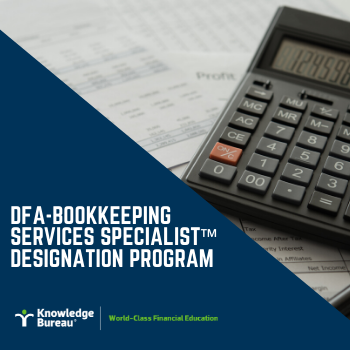Income Tax Burdens Rise in 2020

Evelyn Jacks
It’s hard to believe but back in 1917 the average taxpayer paid $14 and personal income tax was 2.6% of all federal government revenues. But in 2020-2021, the $165 billion the government expects to collect from personal income taxes represents a whopping 57% of all budgetary revenues. This is a significant increase in reliance on the fruits of Canadians’ labour, even when compared to modern standards: 51% in 2017, for example. This makes the role of financial intermediaries – tax, accounting, bookkeeping, payroll and financial advisors – more important this year than ever before. There are many places to look for savings before year-end.
The Fraser Institute believes this upward trend in the taxation of labor will not change anytime soon. In a study published in early 2018, well before the COVID-19 pandemic, it estimated that, as a result of tax changes implemented since 2016, and with changes to the CPP (Canada Pension Plan) that began in 2019, 98 percent of middle-income families will pay an average of $2,260 more and 92.2 percent of all families will pay $2,218 more.
Looking at the rising CPP burden from a proprietor’s viewpoint, net income of $61,500 (less a basic exemption of $3,500 – a figure that is not indexed) requires an employee contribution of  $3,166.45 and an employer contribution of the same amount. In short, the unincorporated gig worker, for example, pays the whole shot - $6,332.90 in 2021. That will squeeze out TFSA savings room of $6,000 for many.
$3,166.45 and an employer contribution of the same amount. In short, the unincorporated gig worker, for example, pays the whole shot - $6,332.90 in 2021. That will squeeze out TFSA savings room of $6,000 for many.
Since then, unprecedented deficit spending will likely change the course of future taxation for decades to come. Under the current policies, the PBO projects the federal debt-to-GDP ratio to peak at 48.3% of GDP in 2022-23. The last time it was above this was in 1999-00. The highest peak, however, was in 1995-96 when it was 66.6%.
But it’s not all bad news. The PBO states that low interest rates used to service the federal debt will give the government some breathing room. It is projected that the government’s debt service ratio will reach its lowest recorded level in 2023-24. As a result, “the higher debt levels generated by temporary pandemic response measures are not expected to create a negative feedback loop on interest charges and will not lead to excessive accumulation of federal debt relative to the size of the economy without maintaining large primary deficits.”
However, it warns that any deterioration in financial conditions, either domestically or externally, could create a risk on the government debt levels and push up debt-servicing costs. The same would happen for households and businesses with debt. In the latter cases, higher borrowing rates could result in more defaults or bankruptcies. For taxpayers, higher taxes, particularly on wealth accumulations, might result.
How Financial Intermediaries can help. For the above reasons, financial intermediaries working with households and businesses should start year end tax planning activities with the development of a current net worth statement.
Next, pay attention to the debt-to-income and debt-to-asset ratios and take a multi-faceted approach to tax efficiency income planning. How can value erosion be avoided? One way, is never to encroach on more invested capital than required, whether that is for personal reasons or tax reasons.
That brings up a second critical professional activity: estimate whether the final quarterly tax remittance (or the annual tax remittance for farmers or fishers) is really necessary. Keeping that money invested if enough has already been paid to cover income levels for 2020 can make a lot of sense, especially given market volatility and low interest rates.
But there is another important reason: if an RRSP contribution will help to reduce middle income levels, taxpayers can avoid clawbacks of EI benefits, Canada Recovery Benefits, Canada Child Benefits, etc.
The role of tax intermediaries is an essential service in these times, and has the potential to evolve with the emerging new economy. You have the opportunity to offer services that lead to deeper opportunities for financial stewardship specifically related to the analysis of business results, budgeting and forecasting, the subject of a new certificate course at Knowledge Bureau.
Canadians also need more tax and financial education from trusted advisors to ensure they understand the critical government benefits available to them, as well as the resulting responsibilities for audit-readinesss. Finally, there is advocacy – potentially your most important role. Your role in helping clients to pay only the correct amount of tax and no more, is critical.
Additional educational resources: Prepare for this important role helping clients by taking Budgeting and Forecasting for Small Business, the new certificate course mentioned above or take the full designation: the DFA-Bookkeeping Services Specialist™ Program.
